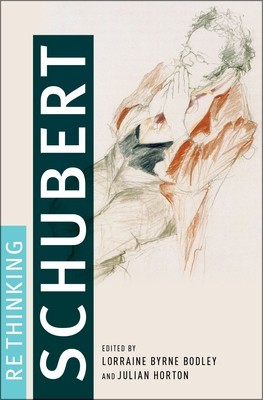
- We will send in 10–14 business days.
- Publisher: Oxford University Press, USA
- ISBN-10: 0190200103
- ISBN-13: 9780190200107
- Format: 15.8 x 23.6 x 4.3 cm, hardcover
- Language: English
- SAVE -10% with code: EXTRA
Rethinking Schubert (e-book) (used book) | bookbook.eu
Reviews
Description
In Rethinking Schubert, today's leading Schubertians offer fresh perspectives on the composer's importance and our perennial fascination with him. Subjecting recurring issues in historical, biographical and analytical research to renewed scrutiny, the twenty-two chapters yield new insights into Schubert, his music, his influence and his legacy, and broaden the interpretative context for the music of his final years.
With close attention to matters of style, harmonic and formal analysis, and text setting, the essays gathered here explore a significant portion of the composer's extensive output across a range of genres. The most readily explicable aspect of Schubert's appeal is undoubtedly our continuing engagement with the songs. Schubert will always be the first port of call for scholars interested in the relationship between music and the poetic text, and several essays in Rethinking Schubert offer welcome new inquiries into this subject. Yet perhaps the most striking feature of modern scholarship is the new depth of thought that attaches to the instrumental works. This music's highly protracted dissemination has combined with a habitual critical hostility to produce a reception history that is hardly congenial to musical analysis. Empowered by the new momentum behind theories of nineteenth-century harmony and form and recently-published source materials, the sophisticated approaches to theinstrumental music in Rethinking Schubert show decisively that it is no longer acceptable to posit Schubert's instrumental forms as flawed lyric alternatives to Beethoven. What this volume provides, then, is not only a fresh portrait of one of the most loved composers of the nineteenth century but also a conspectus of current Schubertian research. Whether perusing unknown repertoire or refreshing canonical works, Rethinking Schubert reveals the extraordinary methodological variety that is now available to research, painting a portrait of Schubert that is vibrant, plural, trans-national, and complex.
EXTRA 10 % discount with code: EXTRA
The promotion ends in 17d.14:59:24
The discount code is valid when purchasing from 10 €. Discounts do not stack.
- Publisher: Oxford University Press, USA
- ISBN-10: 0190200103
- ISBN-13: 9780190200107
- Format: 15.8 x 23.6 x 4.3 cm, hardcover
- Language: English English
In Rethinking Schubert, today's leading Schubertians offer fresh perspectives on the composer's importance and our perennial fascination with him. Subjecting recurring issues in historical, biographical and analytical research to renewed scrutiny, the twenty-two chapters yield new insights into Schubert, his music, his influence and his legacy, and broaden the interpretative context for the music of his final years.
With close attention to matters of style, harmonic and formal analysis, and text setting, the essays gathered here explore a significant portion of the composer's extensive output across a range of genres. The most readily explicable aspect of Schubert's appeal is undoubtedly our continuing engagement with the songs. Schubert will always be the first port of call for scholars interested in the relationship between music and the poetic text, and several essays in Rethinking Schubert offer welcome new inquiries into this subject. Yet perhaps the most striking feature of modern scholarship is the new depth of thought that attaches to the instrumental works. This music's highly protracted dissemination has combined with a habitual critical hostility to produce a reception history that is hardly congenial to musical analysis. Empowered by the new momentum behind theories of nineteenth-century harmony and form and recently-published source materials, the sophisticated approaches to theinstrumental music in Rethinking Schubert show decisively that it is no longer acceptable to posit Schubert's instrumental forms as flawed lyric alternatives to Beethoven. What this volume provides, then, is not only a fresh portrait of one of the most loved composers of the nineteenth century but also a conspectus of current Schubertian research. Whether perusing unknown repertoire or refreshing canonical works, Rethinking Schubert reveals the extraordinary methodological variety that is now available to research, painting a portrait of Schubert that is vibrant, plural, trans-national, and complex.


Reviews